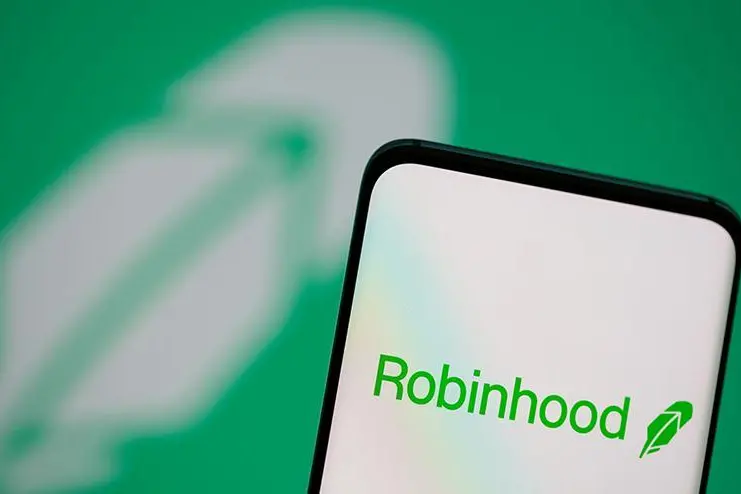PHOTO
Robinhood said on Friday it had entered into a share repurchase agreement with the United States Marshal Service (USMS) for $605.7 million to buy back stock from Sam Bankman-Fried's Emergent Fidelity Technologies.
The shares of Robinhood were seized and subsequently transferred to the custody of the U.S. government after Bankman-Fried's FTX and Emergent filed for bankruptcy protection last year. Bankman-Fried has pleaded not guilty to criminal fraud and conspiracy charges stemming from FTX's November 2022 collapse.
Robinhood shares climbed more than 3% in premarket trading on the news.
The online brokerage said the 55.3 million shares would be sold at $10.96 apiece.
U.S. District Judge Lewis Kaplan in Manhattan approved the deal, court records showed. Kaplan, who is overseeing Bankman-Fried's criminal case, called Robinhood's proposed share purchase agreement "appropriate" and "in the best interest of the relevant stakeholders" in an Aug. 28 order unsealed Friday.
Robinhood first disclosed its intention to buy back the stake in February and said the company's board had authorized it to pursue purchasing most or all of the stock.
Just six months before his company filed for bankruptcy last November, Bankman-Fried revealed a 7.6% stake in Robinhood but said he did not have any intention of taking control of the retail trading platform. He told Reuters at the time that FTX was "excited about Robinhood's business prospects and potential ways we could partner with them."
Bankman-Fried rode a boom in the value of bitcoin and other digital assets to build a net worth of an estimated $26 billion and become an influential political donor in the United States, but FTX's collapse wiped out his fortune.
Kaplan earlier this month ordered Bankman-Fried be jailed ahead of his October trial, finding that the former billionaire likely tampered with witnesses while confined to his parents' Palo Alto, California, home on $250 million bail.
(Reporting by Manya Saini in Bengaluru and Hannah Lang in Washington; Additional reporting by Luc Cohen in New York; Editing by Devika Syamnath and Mark Potter)





















